Tag: conlang year
-
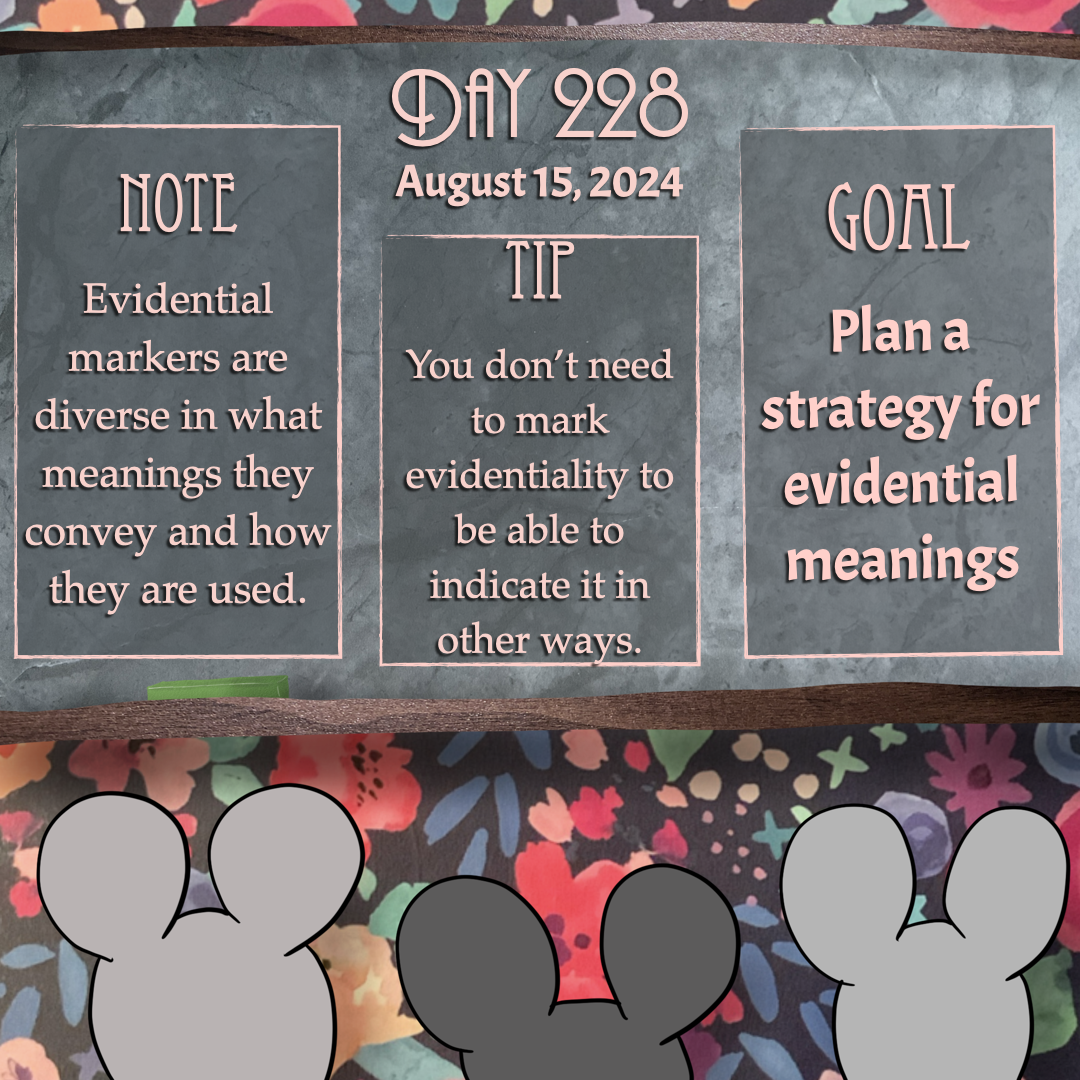
Day 228: August 15, 2024
Goal: Plan a strategy for evidential meanings Note: Evidential markers are diverse in what meanings they convey and how they are used. Tip: You don’t need to mark evidentiality to be able to indicate it in other ways. Work focus: Organize/Plan/Structure Today’s goal is to plan a strategy for communicating evidential meanings, whether that involves…
-
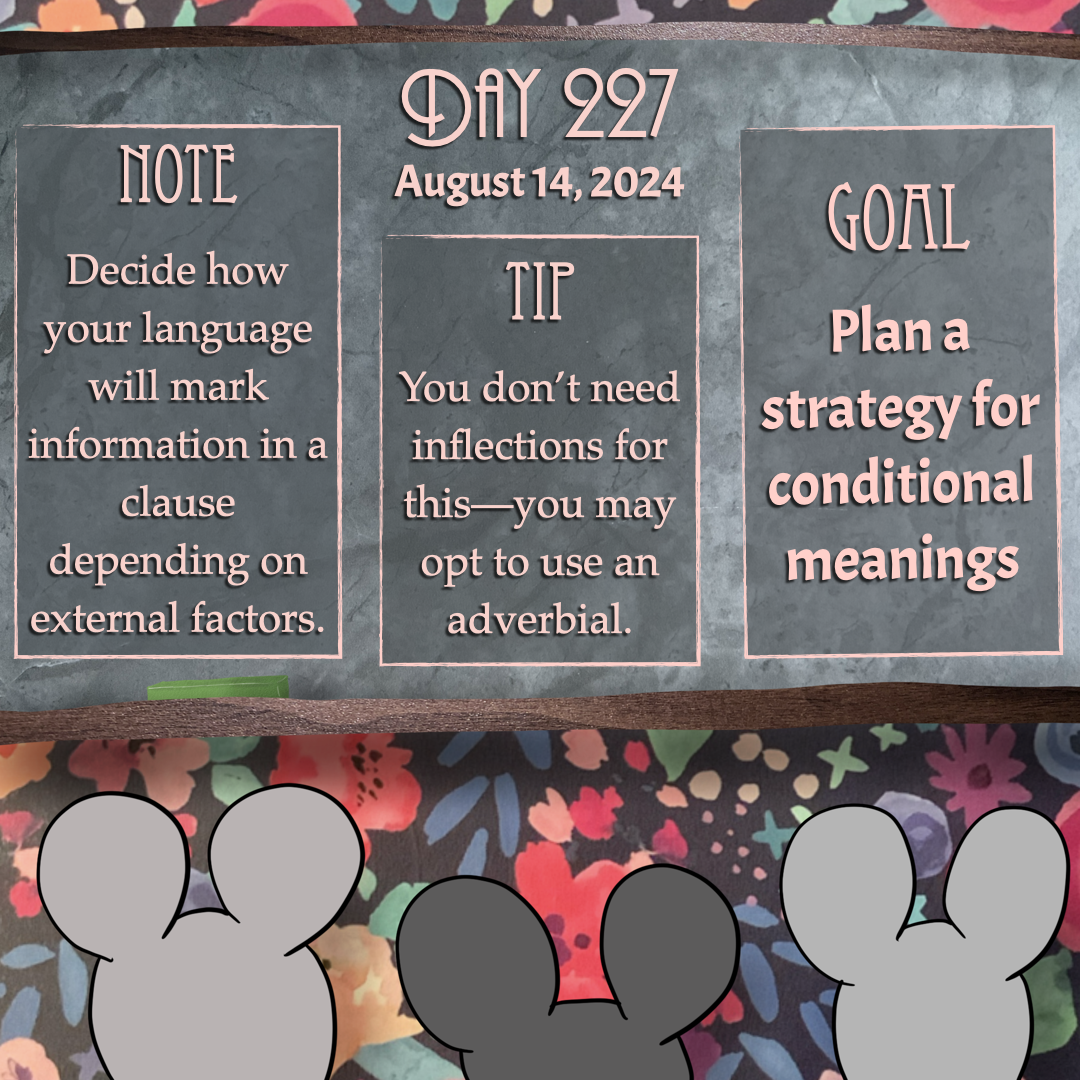
Day 227: August 14, 2024
Goal: Plan a strategy for conditional meanings Note: Decide how your language will mark information in a clause depending on external factors. Tip: You don’t need inflections for this—you may opt to use an adverbial. Work focus: Organize/Plan/Structure Return your focus to conditional meanings to plan a strategy in your conlang to mark information in…
-
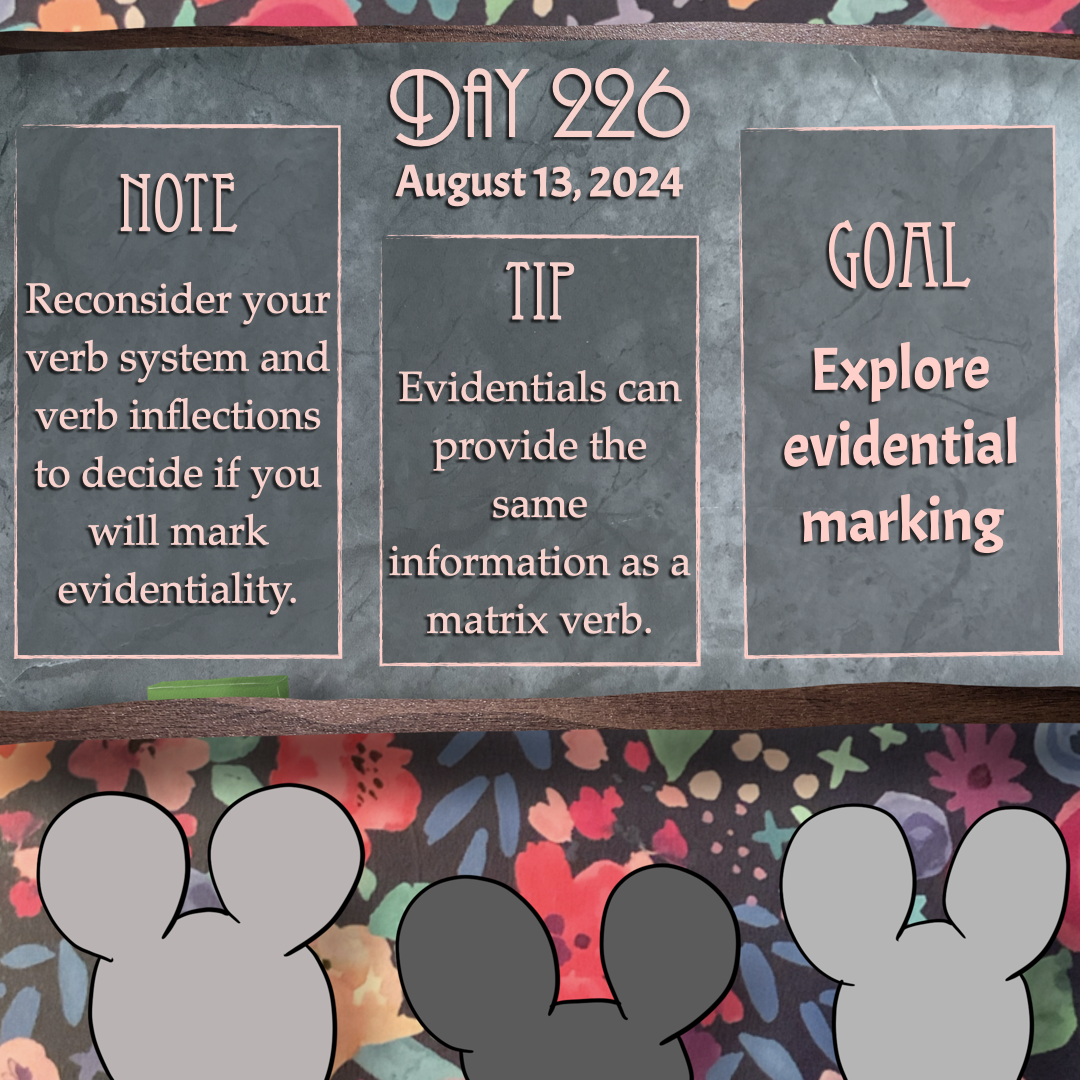
Day 226: August 13, 2024
Goal: Explore evidential marking Note: Reconsider your verb system and verb inflections to decide if you will mark evidentiality. Tip: Evidentials can provide the same information as a matrix verb. Work focus: Learn/Brainstorm/Try Another verbal area to explore is evidential markers. These markers indicate how the speaker knows the information in the clause. A common…
-
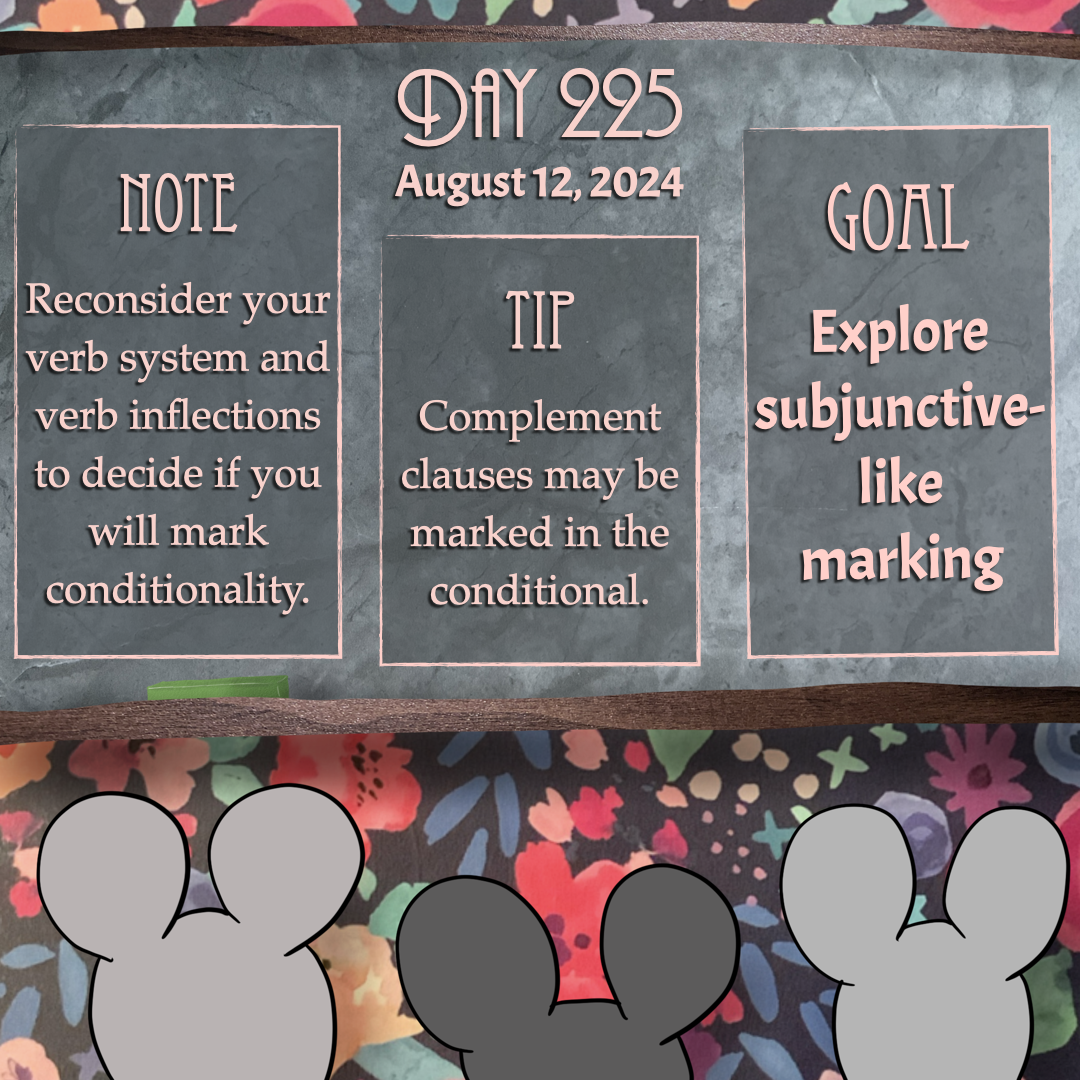
Day 225: August 12, 2024
Goal: Explore subjunctive-like marking Note: Reconsider your verb system and verb inflections to decide if you will mark conditionality. Tip: Complement clauses may be marked in the conditional. Work focus: Learn/Brainstorm/Try Take a step back and reconsider your verb system and the inflections you’ve created so far. Explore options for marking information that generally falls…
-
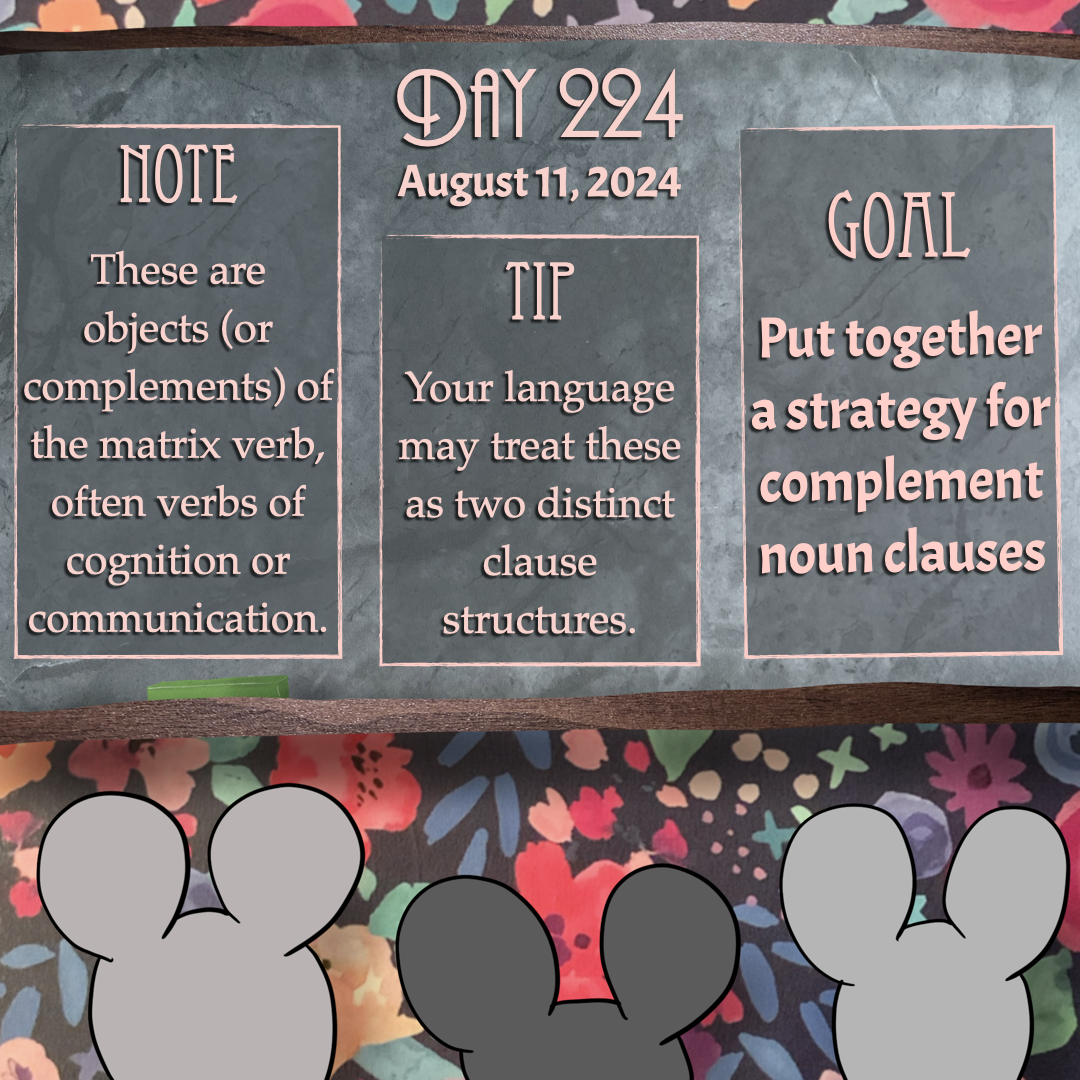
Day 224: August 11, 2024
Goal: Put together a strategy for complement noun clauses Note: These are objects (or complements) of the matrix verb, often verbs of cognition or communication. Tip: Your language may treat these as two distinct clause structures. Work focus: Organize/Plan/Structure Select the strategy for creating noun clause structures in your language, specifically those that follow cognition…
-
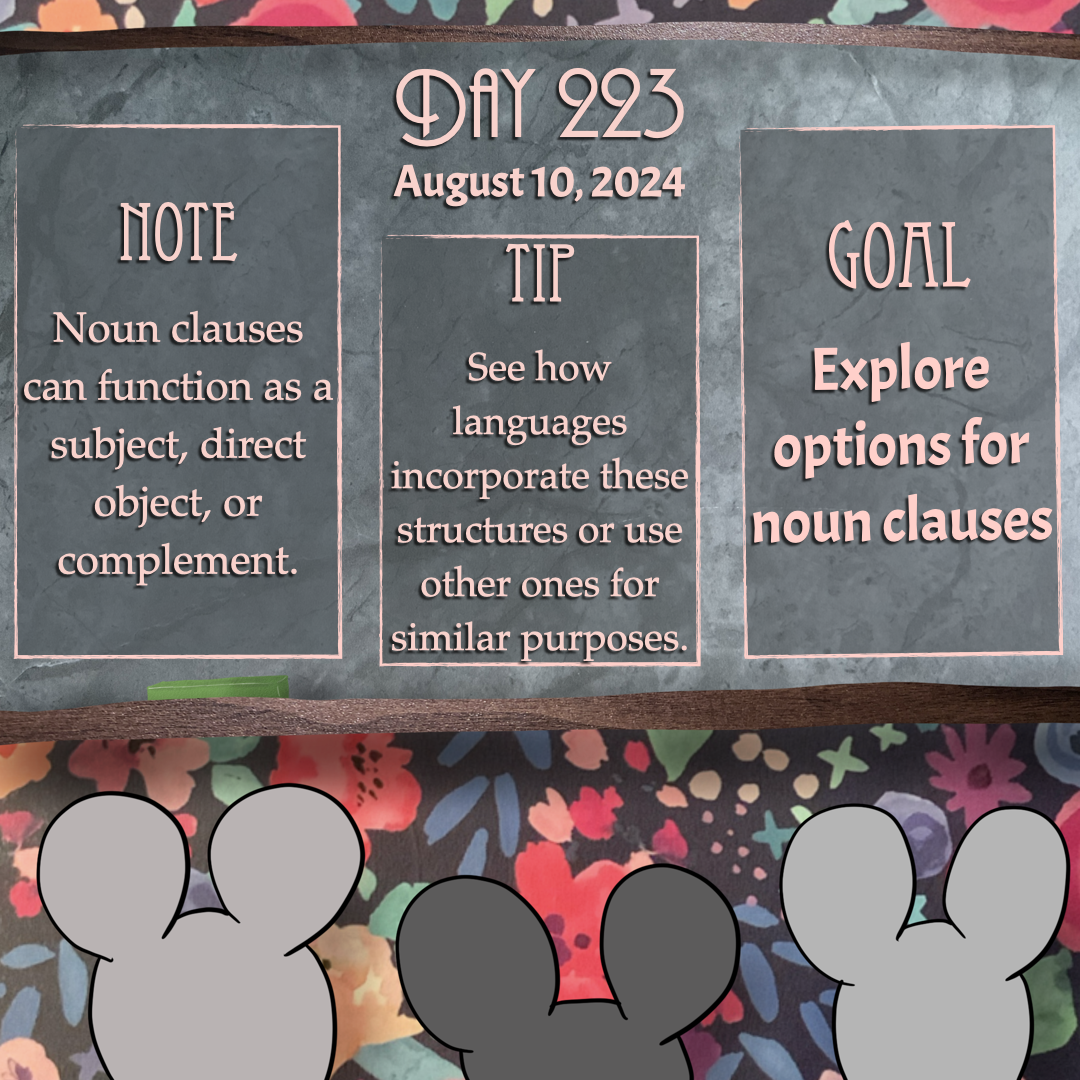
Day 223: August 10, 2024
Goal: Explore options for noun clauses Note: Noun clauses can function as a subject, direct object, or complement. Tip: See how languages incorporate these structures or use other ones for similar purposes. Work focus: Learn/Brainstorm/Try Noun clauses are finite clause structures that function as nominal elements, such as the object of a verb. Common verbs…
-
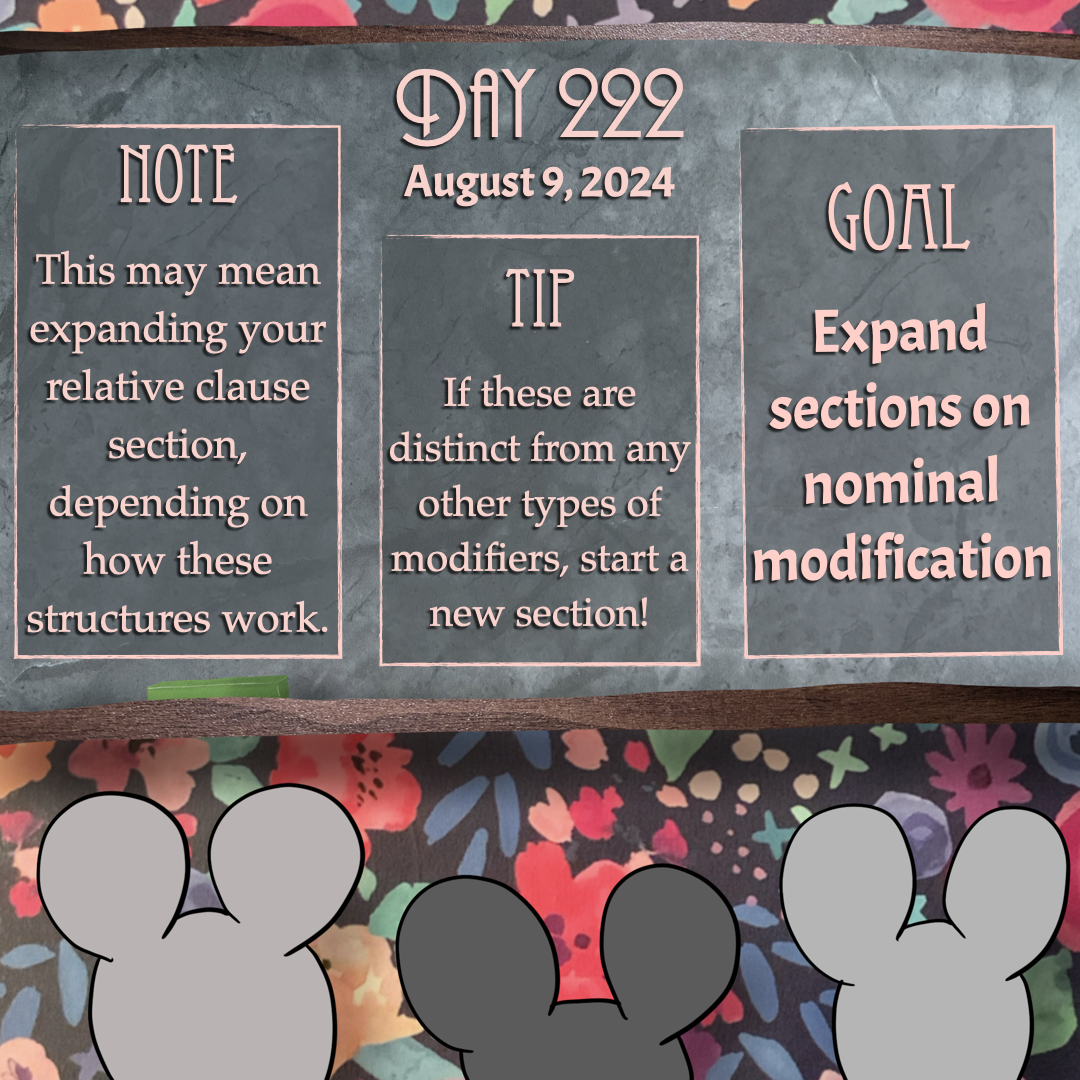
Day 222: August 9, 2024
Goal: Expand sections on nominal modification Note: This may mean expanding your relative clause section, depending on how these structures work. Tip: If these are distinct from any other types of modifiers, start a new section! Work focus: Solidify/Write/Share Today’s goal focuses on documentation, expanding the section (or sections) on nominal modification to incorporate details…
-
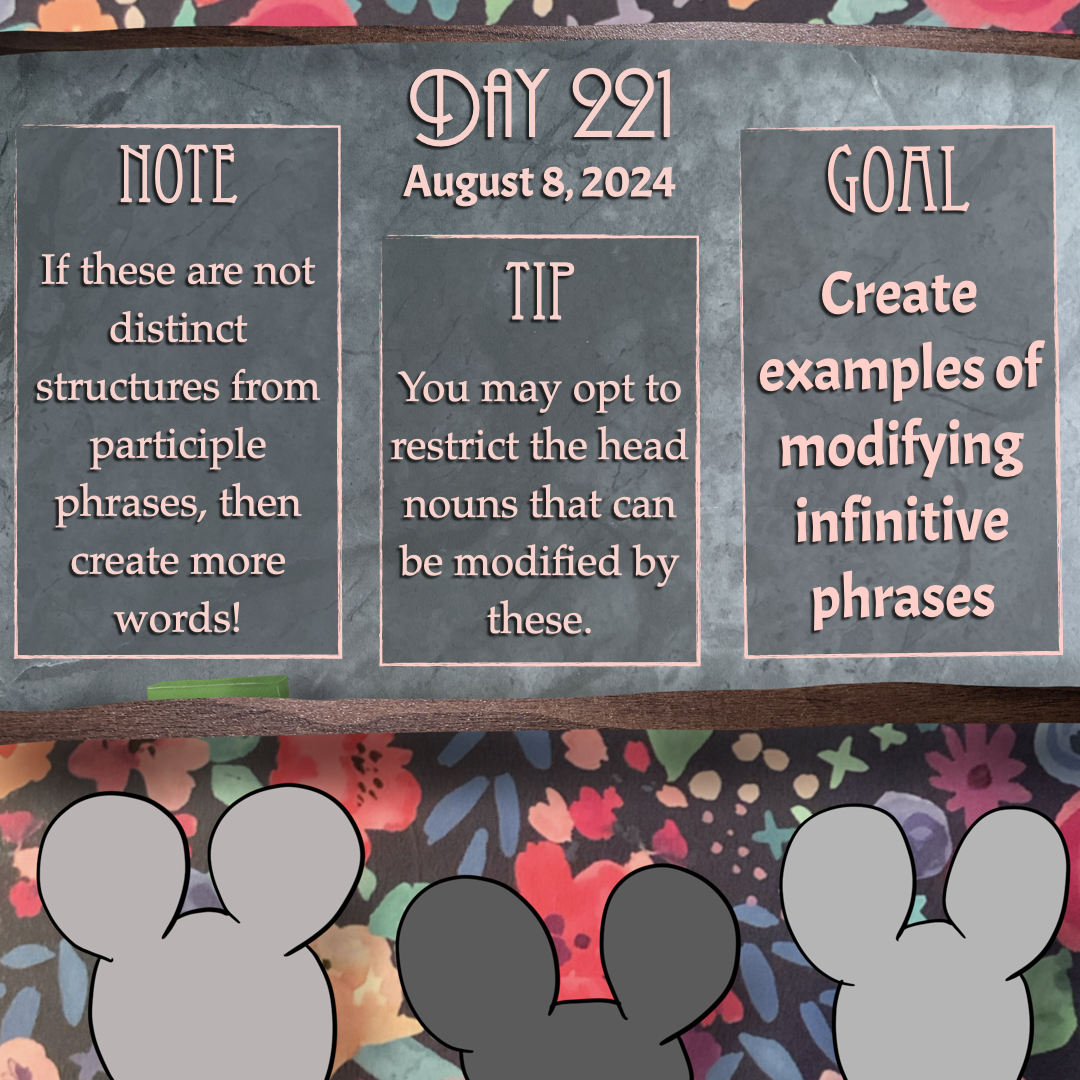
Day 221: August 8, 2024
Goal: Create examples of modifying infinitive phrases Note: If these are not distinct structures from participle phrases, then create more words! Tip: You may opt to restrict the head nouns that can be modified by these. Work focus: Create/Make/List Finally, if your conlang differentiates infinitive modifiers from other nonfinite verb-based modifiers, then create examples of…
-
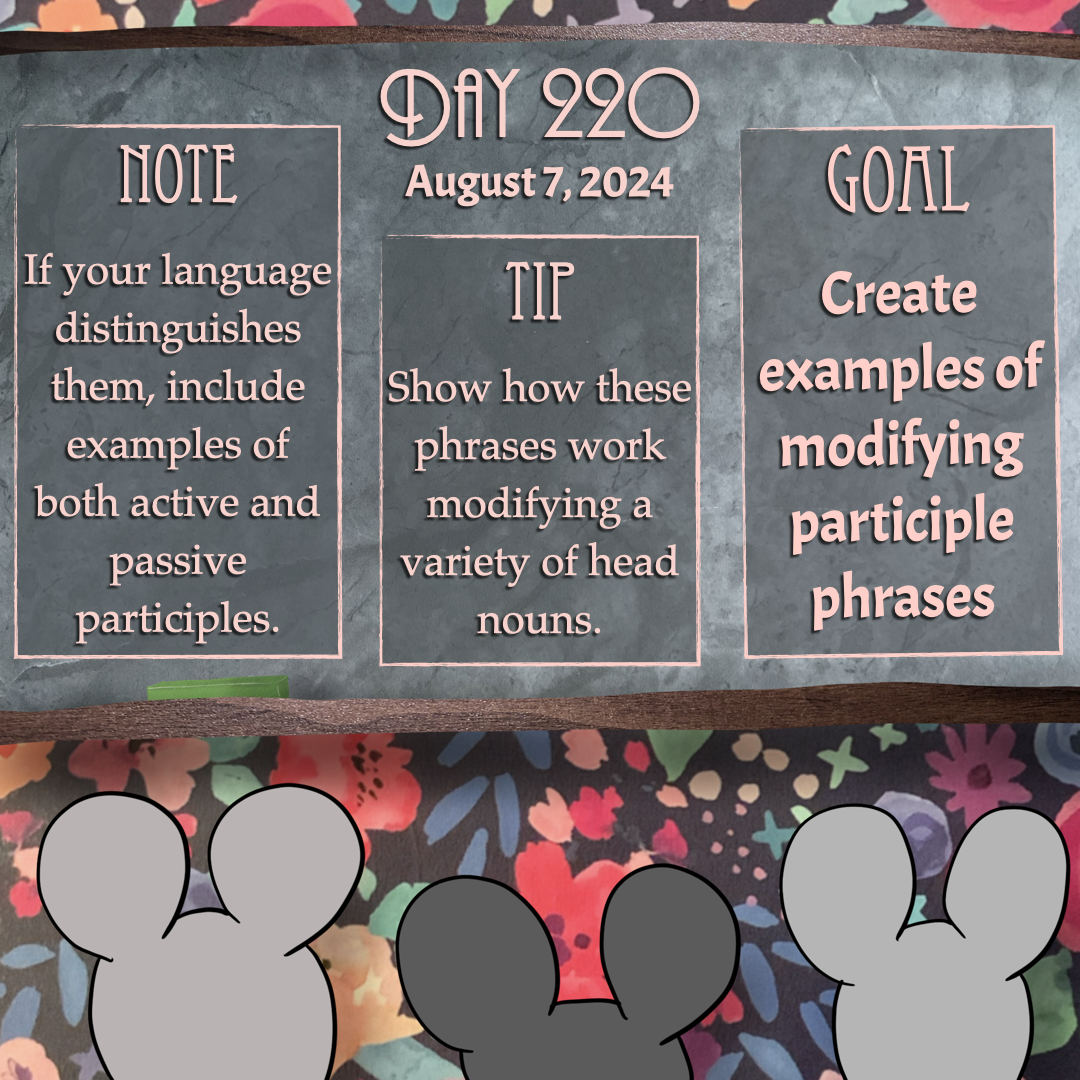
Day 220: August 7, 2024
Goal: Create examples of modifying participle phrases Note: If your language distinguishes them, include examples of both active and passive participles. Tip: Show how these phrases work modifying a variety of head nouns. Work focus: Create/Make/List Create examples of participle phrases modifying a head noun—if your conlang has both active and passive participle forms, then…
-
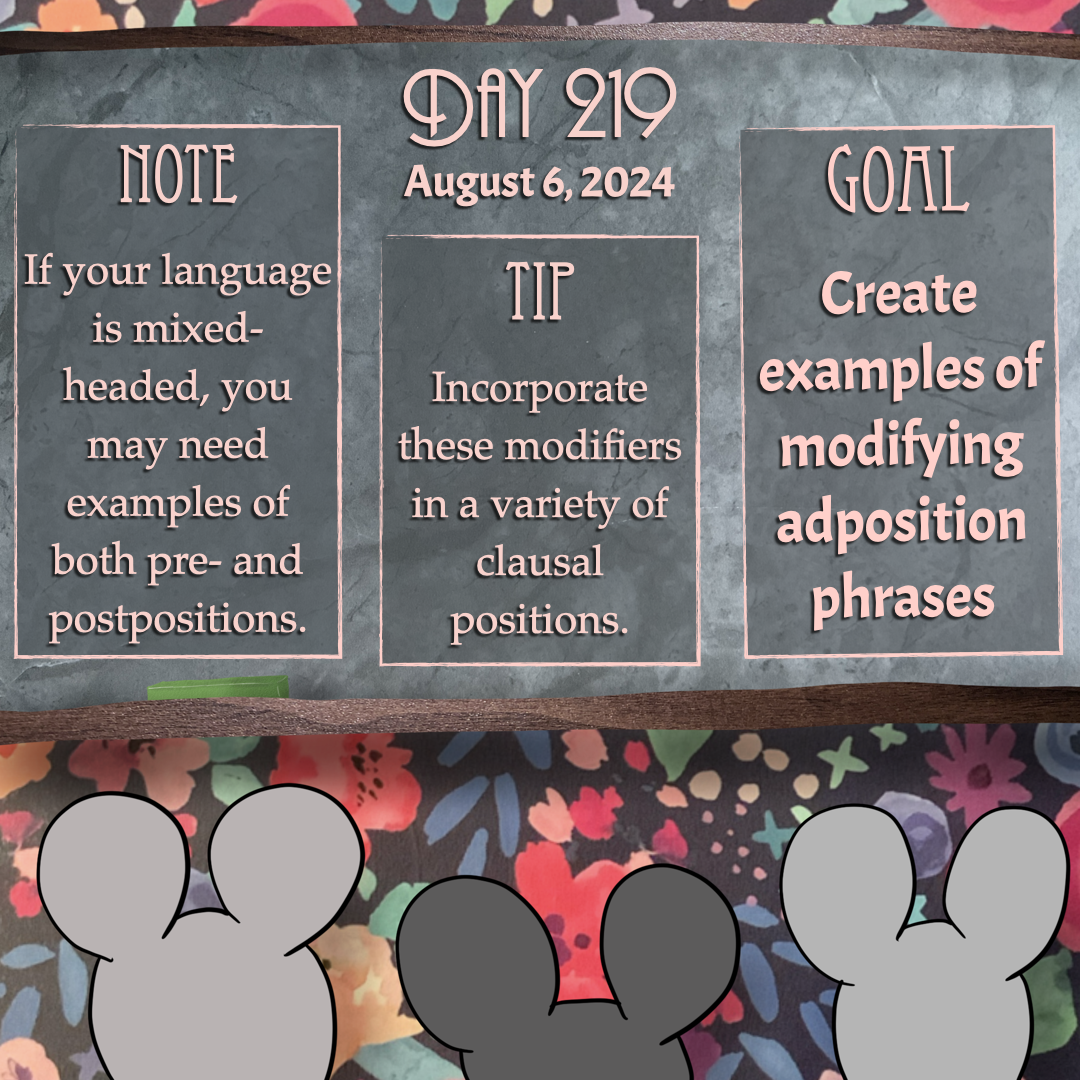
Day 219: August 6, 2024
Goal: Create examples of modifying adposition phrases Note: If your language is mixed-headed, you may need examples of both pre- and postpositions. Tip: Incorporate these modifiers in a variety of clausal positions. Work focus: Create/Make/List Now that you have developed strategies for phrasal modifiers of head nouns, the next few days will give you time…